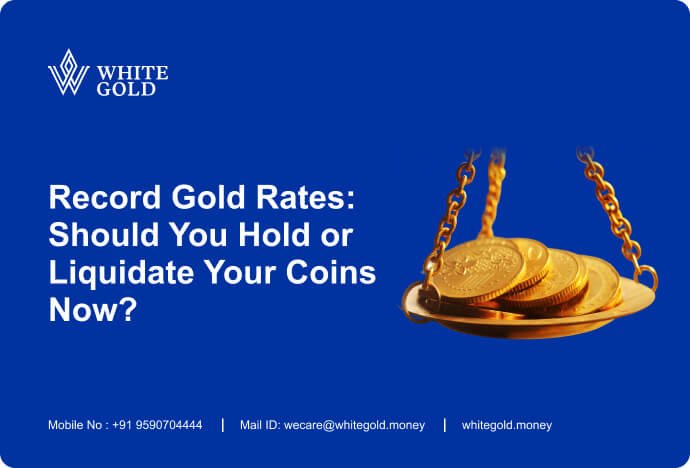Why Selling Gold Is A Better Option Than Taking A Gold Loan

5min read

Gold has been coveted by humans for centuries, and its value as a precious metal remains unparalleled to this day. With its lustrous shine, rarity, and durability, gold has been used for everything from jewellery to currency and investments.
Despite fluctuations in the market, gold has proven to be a stable and reliable investment for many, making it a symbol of wealth and prosperity around the world. Its allure is not just limited to financial gain, as gold’s cultural and historical significance adds to its mystique, making it an object of desire for people from all walks of life.
However, when it comes to obtaining liquidity, many individuals may consider taking a gold loan against their gold holdings. While this may seem like an attractive option, selling gold can often be a better alternative. In this blog, we will explore why selling gold is a better option than taking a gold loan.
- Avoiding Interest Payments:
Gold loan will add the burden of paying interest. Although the interest rate for a gold loan varies based on various factors and lenders, they are usually higher than other secured loans such as home loans or car loans. Meaning the borrowers would end up paying more on interest charges eating up all their savings.
In contrast when one wishes to sell gold, there is no interest to be paid. The seller receives the full amount of money immediately from the gold buyers upon successful transaction and they can use it for any purpose they desire.
- No risk of default
When taking a gold loan, the borrowers need to provide their gold as collateral. If they fail to repay the loan, the lender has the right to sell gold to recover the loan amount meaning the borrower will risk losing their gold if they are unable to repay the loan.
On the other hand, when selling gold, there is no risk of default. The seller receives the full amount of money immediately after completing the process for gold. There is no obligation to repay any loan amount or risk losing their valuable gold.
- No Obligation to Repay
When taking a gold loan, borrowers are required to repay the loan amount along with the interest within a specified period. Failure to do so can result in the lender auctioning off the gold to recover the loan amount.
However, when they sell gold, they are not obligated to repay any loan amount. The seller receives the full amount of money for the gold, and they can use it as they please without any repayment obligations.
- Potential For Higher Returns
Gold prices are subject to fluctuations in the market, and it is not always easy to predict the direction of these fluctuations. While the value of gold may appreciate over time, it can also depreciate, resulting in lower returns for the investor.
However, when selling gold, the seller receives the current market price for the gold from the gold buyers, which can be higher than the purchase price. This means that there is potential for higher returns when selling gold, as compared to holding on to it for an uncertain future price appreciation.
While taking a gold loan may seem like an attractive option to obtain liquidity, selling gold is often a better alternative. Selling gold avoids interest payments, eliminates the risk of default, has no repayment obligations, and can potentially result in higher returns. Therefore, individuals looking to obtain liquidity should consider selling gold as a viable option with reputed gold buyers who offer transparent and quick gold for cash services.







